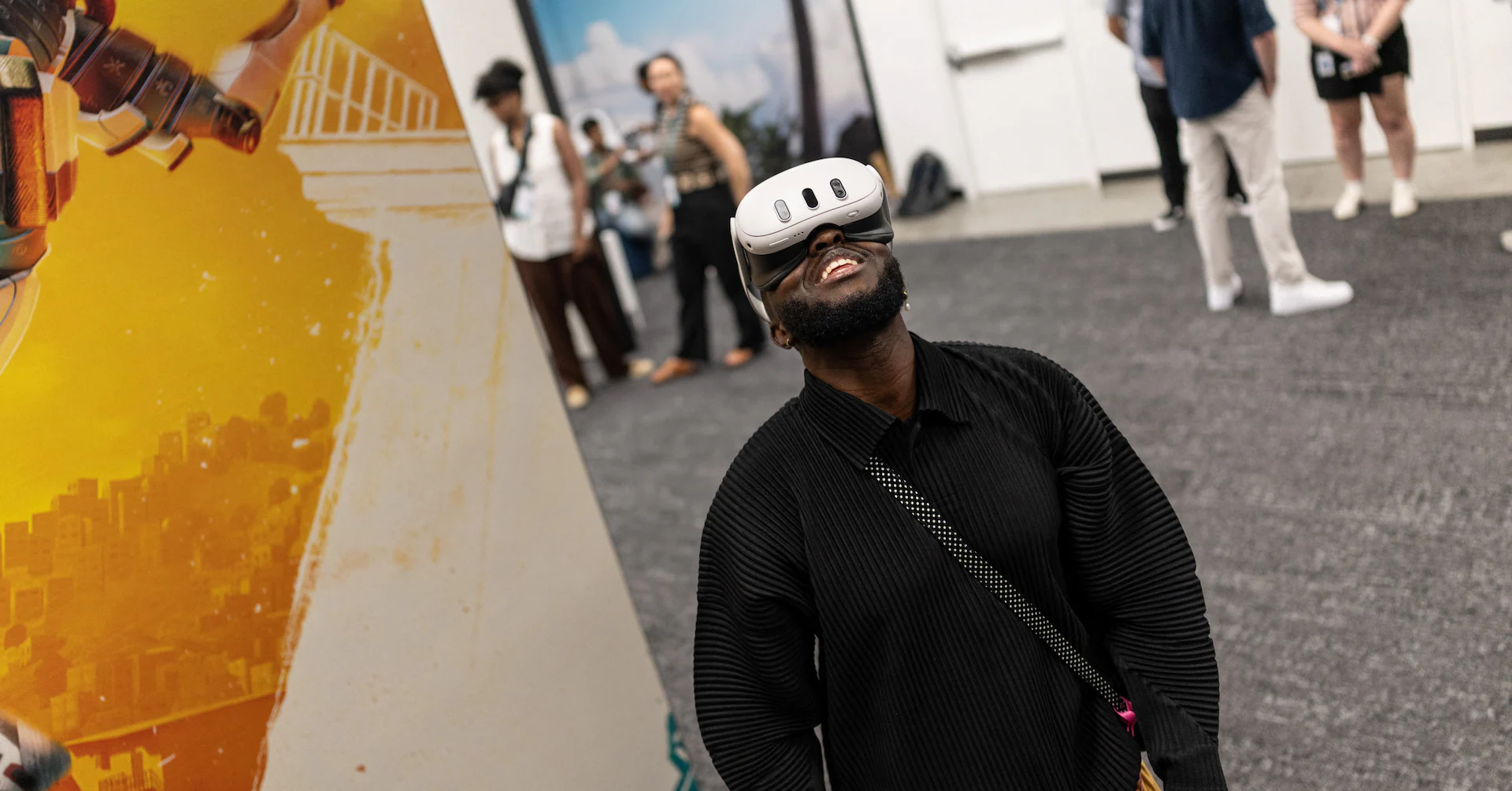
Chief Executive Mark Zuckerberg showed off what he called Meta Ray-Ban Display, although some demos of the new technology did not go as planned, with a call to the glasses failing to go through, for instance.
Sign up here.
“I don’t know what to tell you guys,” Zuckerberg said. “I keep on messing this up.” The crowd applauded.
The glasses have a small digital display in the right lens for basic tasks such as notifications. They will start at $799 and be available on September 30 in stores.
The launch at Meta’s annual Connect conference for developers, held at its Menlo Park, California, headquarters, is its latest attempt to catch up in the high-stakes AI race.
To catch up, Zuckerberg has kicked off a Silicon Valley talent war to poach engineers from rivals and promised to spend tens of billions of dollars on cutting-edge AI chips.
He has also touted smart glasses as the ideal device for superintelligence – a concept where AI surpasses human intelligence in every possible way – because they serve as a personal, always-on interface that can see, hear and interact with the world through the user’s perspective.
Working toward that vision, Meta also unveiled on Wednesday a new pair of Oakley-branded glasses called Vanguard aimed at athletes and priced at $499. The device integrates with fitness platforms such as Garmin and Strava to deliver real-time training stats and post-workout summaries and offers nine hours of battery life. It will be available starting on October 21.
It updated its Ray-Ban line, now offering almost twice the battery life of the previous generation and a better camera at $379, higher than the previous generation’s $299 price.
All the devices have existing features such as Meta’s AI assistant, cameras, hands-free control and livestreaming to the company’s social media platforms including Facebook and Instagram.
The new glasses come as Meta is facing scrutiny over its handling of child safety on its social media platforms.
Reuters reported in August that Meta chatbots engaged children in provocative conversations about sex and race, while whistleblowers said earlier this month that researchers were told not to study the harmful effects of virtual reality on children.
While analysts do not expect Celeste to post strong sales, they believe it could be a step toward the planned 2027 launch of its Meta’s?? “Orion” prototype, unveiled last year and described by Zuckerberg as “the time machine to the future.”
“It wasn’t long ago that consumers were introduced to AI on glasses and in recent quarters brands have also begun to include displays, enabling new use cases,” said Jitesh Ubrani, research manager for IDC’s Worldwide Mobile Device Trackers.
“However, consumer awareness and product availability of AI glasses with display remains limited. This will change as Meta, Google, and others launch products in the next 18 months.”
Reporting by Aditya Soni and Echo Wang in Menlo Park, California; Editing by Sayantani Ghosh and Matthew Lewis
Our Standards: The Thomson Reuters Trust Principles., opens new tab
Echo Wang is a correspondent at Reuters covering U.S. equity capital markets, and the intersection of Chinese business in the U.S, breaking news from U.S. crackdown on TikTok and Grindr, to restrictions Chinese companies face in listing in New York. She was the Reuters’ Reporter of the Year in 2020.



